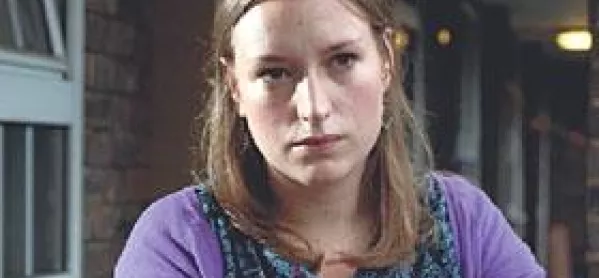Teach First: second rate for primaries
Pilot participant says fast-track scheme lacks necessary breadth
Share
Teach First: second rate for primaries
https://www.tes.com/magazine/archive/teach-first-second-rate-primaries

Original paper headline: Teach First claimed to be second rate for primaries Concerns have been raised about whether a high-profile scheme to put top graduates into challenging schools can work in the primary sector. Teach First is ill-suited to primaries because of the knowledge needed to teach a wide range of subjects and deal with children’s emotional development, according to one of just 10 participants who took part in a pilot study. The expansion of Teach First was not properly planned, said Sarah McKay, a Cambridge University languages graduate who dropped out of the two-year scheme after a year but wants to continue her teaching career. She said she had not been offered the guidance she needed in either the initial six-week training period or when she encountered problems at Belvedere Junior School in Kent. “In secondary schools you can be passionate and knowledgeable about your subject and focus on that,” she said. “With primary you have all the subjects, teaching strategies and the emphasis on children’s social and emotional development to cope with. “I was given my own class during my first term. We did not have rigorous enough training for the level of responsibility placed on us.” Ms McKay also said her school had not given her the support she needed. She added: “My feeling was that the school had been persuaded that I was like a newly qualified teacher, but that was not true. I think they felt let down.” Last year’s participants in the Teach First primary programme were recruited as foreign language specialists, but Ms McKay said she used her expertise for a maximum of one hour of teaching a week. The primary pilot was launched after Teach First in secondary schools was widely praised. It took on 10 participants in its first year, expanding to 30 from September 2009. The pilot has now secured funding for a third year. Teach First participants normally achieve qualified teacher status after one year. Ms McKay was not judged to have reached the necessary standard and will now have to complete an unpaid eight-week placement in a different school. Amanda Timberg, director of regional development at Teach First, said: “We have worked closely with our first primary cohort - nine out of 10 of whom achieved qualified teacher status at the end of their first year - and collaborated with our partner schools and training providers to adapt our support to meet their and their pupils’ needs.” Ms Timberg said Teach First had worked closely with Ms McKay to “make the year more manageable for her”. Nicola Bulpitt, headteacher of Belvedere, said the school had gone to “great lengths” to help Ms McKay, including a reduced timetable and increased support. The school would use Teach First again in the future, Ms Bulpitt added. But Christine Blower, general secretary of the NUT, criticised the expansion of Teach First. “It is touch and go whether it is suitable for secondary schools, but teaching economics to a class of enthusiastic 16-year-olds is a very different proposition from dealing with the complex range of learning and emotional needs of a young child,” said Ms Blower.
You've reached your limit of free articles this month. Subscribe for £1 per month for three months and get: